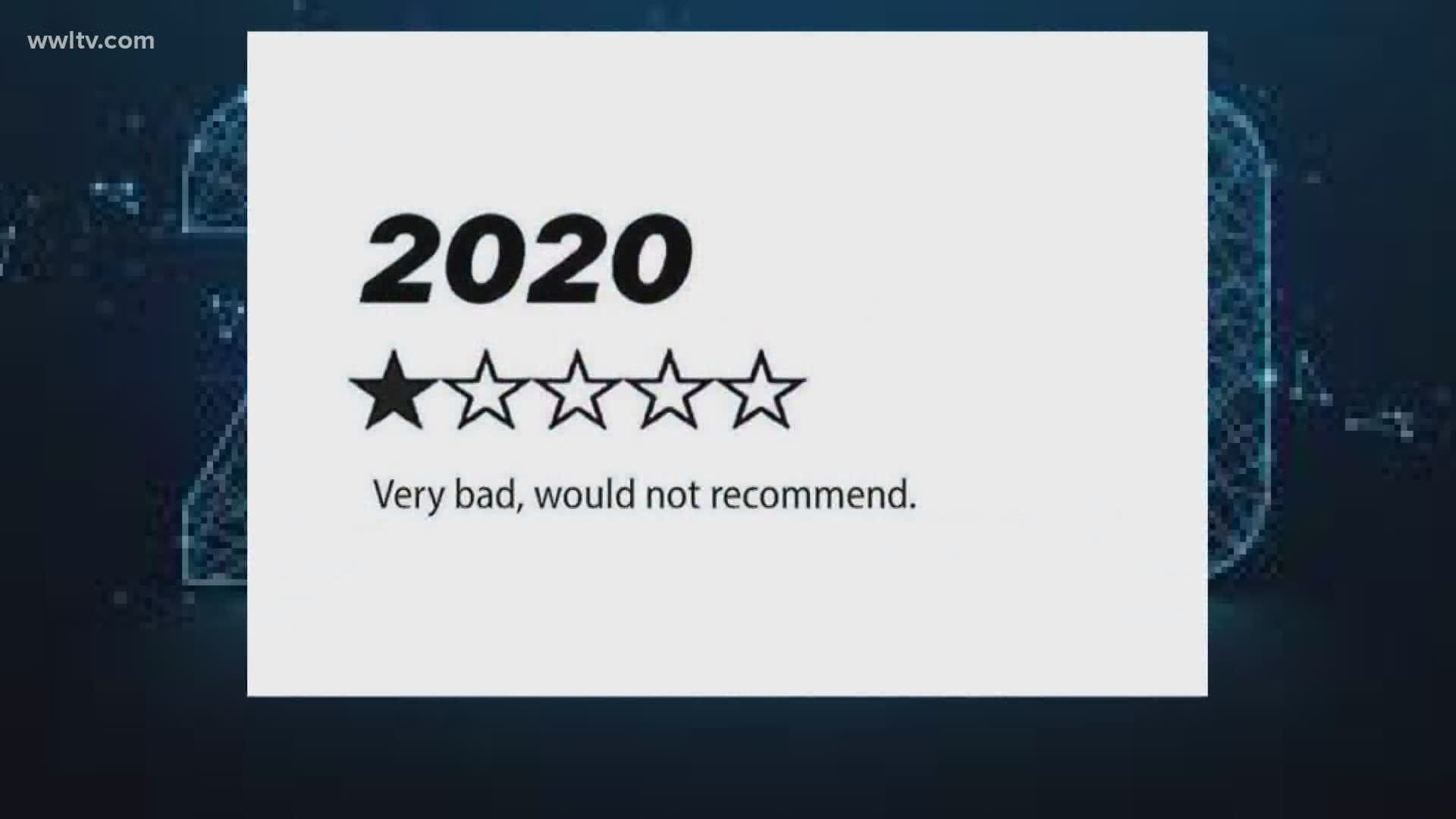NEW ORLEANS — We’re not even halfway into 2020, and yet so much has changed in our lives.— and that is causing an increase in the need for mental health treatment.
There are funny memes about life in 2020, but behind them are the real stress triggers. Pandemic, deaths, lockdowns, job loss, protests, storms, domestic violence, cabin fever, quarantine weight gain, no funerals, weddings or graduations.
And this comes all at a time where, we as social, pack animals, need our pack the most.
"Our whole world is changed right now, and one way you can stress a person is to just change our everyday routines," explained Psychologist Dr. Ken Jones, Chief of Psychology Service at the Southeast Veterans Health Care System.
Dr. Jones treats veterans at the VA, and he is seeing these stress triggers take their toll.
"Nationally, the Department of Veterans Affairs treated 120,000 veterans for mental health issues in May. That’s a record-breaker," he said.
Dr. Jones said the mental pain felt in this situation is similar to the mental pain felt in the aftermath of Hurricane Katrina.
"I was seeing clinical evidence of anxiety and worry in patients that had no history of this," Dr. Jones said.
So Dr. Jones has these tips for us:
- Avoid panic with deep breathing and planned strategies.
- Stress causes anger and fear. Cut people slack when they act out.
- T-ake extra care of your health, with exercise, healthful, not comfort junk food.
- Rest. Caffeine and alcohol hurt valuable sleep.
- Calm yourself through yoga or prayer or meditation.
People should consider practicing physical distancing rather than social distancing. People should still spend time with loved ones, friends and coworkers through the phone or zoom.
"We’ve all had major traumas in life. We’re lost loved ones. We’ve been through hurricanes before. There are things we did to cope in the past. Remember those things, and do it," said Dr. Jones. "Be hopeful. We’re going to get through this. We’ve been through worse before."
The VA crisis line is for veterans and non-veterans as well. That’s 1-800-273-TALK.
Many of the mental health sessions are now being done through telemedicine rather than in person.
► Get breaking news from your neighborhood delivered directly to you by downloading the FREE WWL-TV News app now in the IOS App Store or Google Play.

